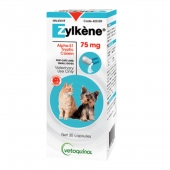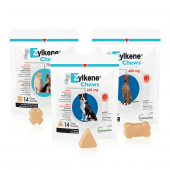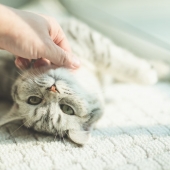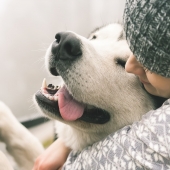After being confined at home during the COVID-19 crisis, many families have made the decision to adopt a puppy. Having more free time and a more flexible schedule is perfect for basic puppy training. However, as confinement guidelines become less strict and people return to work, their new companion will be left at home by themselves for the first time. Here are some tips to help make this transition easier for them.
Understanding separation anxiety in dogs
Being pack animals, dogs are not naturally inclined to be alone. This may lead your pet to experience separation anxiety, a serious problem that can manifest itself through destructive behaviour like chewing objects, excessive barking and whimpering, urinating or defecating in the house or digging frantically in the backyard. These behaviours could be a sign that loneliness is taking a toll on your four-legged friend.
Get your dog used to being alone
To ease the transition, get your dog used to being by themselves gradually. Start by leaving the room briefly, not allowing your pet to follow along, and coming back quickly. Add increasingly longer periods where’s you’ll be in a separate room from your dog, for example 15 or 30-minute intervals of work from your home office. Then leave home entirely, for longer and more frequent outings, such as an hour or two of groceries and shopping for other essentials.
Take it slow, so your dog won’t feel abandoned and will come to trust you’ll always be coming back.
Teaching alone time to puppies
If your puppy doesn’t yet remember a time when you weren’t with them all the time, you may need to go even more slowly. Prepare a small confined space for them, like a crate or using a baby gate, and leave them with a chew toy for a few minutes. As you return, reward them with a treat. Repeat the process, progressively increasing the amount of time you’re away.
Reduce the number of walks
Fresh air can do wonders for your morale, and it’s likely that daily walks with your dog have become even more frequent during confinement. If you don’t expect you’ll be able to consistently keep the same rhythm when going back to work, it’s better to reduce their number gradually as well. Consider replacing a few walks during the day with shorter indoor play sessions.
Consider behavioural supplements
If you’re being called back to work on short notice, it’s possible this won’t leave you enough time to prepare your dog for your absence. Or maybe you’ve tried the advice above, but your companion is still having a hard time being on their own. In such cases, your veterinarian may recommend a supplement like Zylkene to reduce anxiety in your pet. This natural supplement contains alpha-casozepine, an ingredient derived from a milk protein known for its calming effects. Sprinkling Zylkene on your pet’s food once per day may help them feel more relaxed as they learn to adjust to their new routine.





